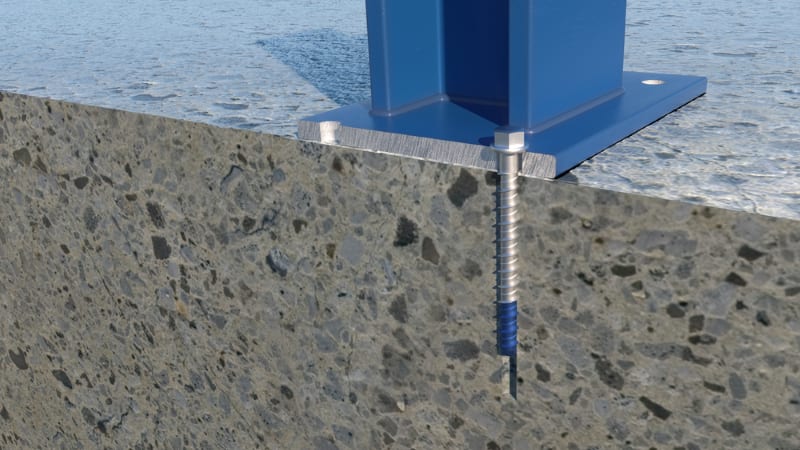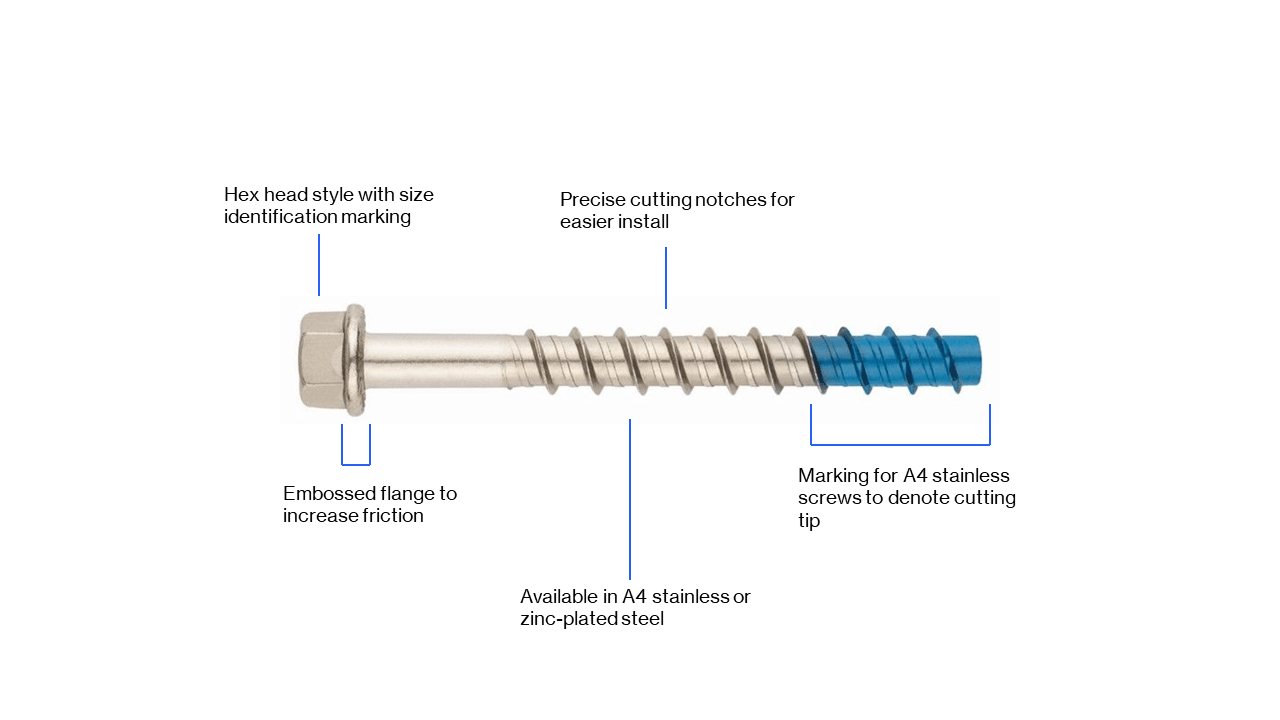
A guide to choosing concrete screws
- Read time: 2 minutes
- Date: 13 Mar 2024
- Rainscreen & Façades
There's a lot of choice when it comes to selecting a suitable anchor for your application. In this article we'll go over:
What is a concrete screw?
Why would I use a concrete screw?
Are they cost-effective?
How do I know which one to choose?
How do I install a concrete screw?
Do concrete screws have to be installed with a specific driver?
What concrete screws do Fixfast offer?
What is a concrete screw?
A concrete screw is a fastener used for structural applications when fixing back to concrete and masonry substrates. They're a type of self-tapping screw, which means the hole has to be pre-drilled to allow the anchor to 'tap' into the sides of the pre-drilled hole. Known sometimes as 'interlocking anchors', the thread form on the screw is designed to create a 'key' with the substrate, ultimately creating the resistance needed to hold it into position.

Why would I use a concrete screw?
Compared to other anchors, concrete screws can save a lot of time on-site, as they are a one-piece anchor - and once installed into the hole, don't need to be tightened to a specific torque. Over against a nylon anchor or expanding throughbolt which has to be hammered and then tightened to the correct torque, concrete screws are effective in being installed in a range of applications where the interlocking nature of the screw is suitable.
Another advantage of using concrete screws is that they don't require expansion, which means reduced spacings and edge distances can be achieved.
Are they cost-effective?
Being a one-piece anchor, these screws are quick and easy to install - which can result in time and labour costs saved on-site.
However, when comparing concrete screws to other anchors, the cost-effectiveness of these screws depends on the application they are used in, as every project is different.
How do I know which concrete screw to choose?
There are several factors to consider when choosing the correct concrete screw for your specific application:
Material
The starting point should always be determining the material grade. Concrete screws are widely available in stainless steel A4, stainless steel A2, galvanised carbon steel, and zinc-plated carbon steel. Your project location and the application (such as dissimilar metals) must be taken into consideration.
Dimensions
Concrete screws are available in numerous diameters and lengths. When considering the dimensions required, a few factors must be taken into account, such as:
The type and thickness of the fixture
The level of technical performance required (permissible loadings/design value/shear etc.)
Substrate
It's important to remember that concrete screws aren't suitable for all types of substrates. As a general guide, concrete screws aren't suitable for use in hollow or perforated bricks, or lightweight concrete blocks.
However, if you require an anchor for installing into cracked or non-cracked concrete, the concrete screw might be the best option for your application.
Head style
There's a wide range of head styles available - including hex, countersunk, pan, and options with specific features such as a threaded insert within the head (used widely in the M&E industry).
The type of fixture you're fixing will determine the appropriate head style for your specific project.
How do I install a concrete anchor?
Do concrete anchors have to be installed with a specific driver?
Concrete anchors don't need to be installed with a specific screwgun or driver as they don't need to be set to a specific torque.
However, larger diameter and longer length concrete screws will need to be driven with a powerful impact driver to install them correctly.
Not sure what size drill to use to pre-drill the hole? Most screws have the diameter in the code - for Fixfast, this can be seen in the code after the letters - e.g. TXE-6 x 40 - the diameter for pre-drilling is 6mm. Refer to the manufacturer's instructions for specific information.
What concrete screws do Fixfast offer?
Here at Fixfast, the concrete screws we offer are the Index TXE/TFE ranges - some of the benefits of the anchors include:
They're ETA approved and CE marked
C1 and C2 assessed for use within seismic zones
R120 fire rated in line with industry standards
Achieve similar pull-out performance values to equivalents within the market






